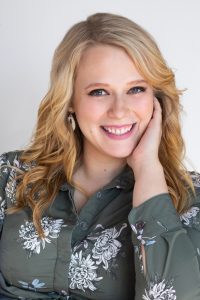Faculty Profile: Jillian Hinderliter
Interviewed by Ellen Perleberg, graduate student assistant
Tell me a little about your current book project.

My current book project is about American Jewish women active in the feminist health movement from the 1960s through the 1980s. I am interested in a broad understanding of the women’s health movement and how Jewish social justice values intersected with feminist thought. It’s also about the question of what compels activism. How does someone make that shift from a dissatisfied individual patient experiencing sexism in medical care to an activist?
What big lessons do you hope students take away from your classes?
I hope that my students take away that politics is many things, not only formal politics as people understand it through voting and lobbying. I emphasize with my students that conversations about health inequities are also political conversations, and that in the classroom, we’re asking broader questions about authority and power and how people who are so often marginalized make inroads in these systems.
Every historian has that one story from their research that makes them say “That’s why I do what I do.” What’s yours?
Someone’s story that’s really moved me is that of Rose Kushner. Rose was born in 1929 to immigrant parents. She was interested in medical careers, but that was ultimately inaccessible to her, so she became a journalist. It’s not until she herself has breast cancer that she starts deeply investigating contemporary issues around breast cancer surgery and patients’ rights. Through her patient experience, she has this very real shift from being a health journalist to being a health activist. Here she was, this woman in the 1970s who was taking a bath and found a lump. And what did she do? She went to the library. She found one book in the public library about breast cancer. So she essentially wrote the books she couldn’t find. The Jewish press did talk about her as a Jewish woman, as someone from a community where breast cancer was more prevalent. The BRCA gene discoveries weren’t made yet, but many in the Ashkenazi community understood their higher risk. Rose discusses these trends and others, saying to breast cancer patients of many backgrounds, “this is what we’re seeing, and this is what we can demand” in terms of surgical options, second opinions. Rose becomes just a powerhouse. She speaks with researchers worldwide and pulls in rhetoric from health feminism and patients’ rights. I am always taken aback by how powerful her voice was because she herself had to make these decisions. She was one of those activists who just seemed to be everywhere.
Jillian Hinderliter is an assistant professor in the Women and Gender Studies Department and the Moses M. and Hannah L. Malkin Fellow in Jewish History.
